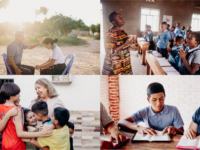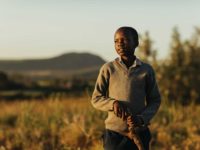![]() Ninety-nine percent of the time, I get ready for my day after my 6½-year-old goes off to school. My 15-month-old daughter takes her morning nap around this time, and my 3-year-old plays on starfall.com. It just works better this way.
Ninety-nine percent of the time, I get ready for my day after my 6½-year-old goes off to school. My 15-month-old daughter takes her morning nap around this time, and my 3-year-old plays on starfall.com. It just works better this way.
But for whatever reason, one morning last month I woke up early — too early in my opinion, and I could not fall back asleep.
“Might as well get up,” I thought. So, I got a shower in and, wouldn’t you know, not 10 minutes after I stepped out, I hear a loud “CHUG CHUG CHUG!” coming from my cellar.
I ignored it (mainly because I don’t like going into the cellar) and went to brush my teeth. No water.
CHUG CHUG CHUG.
Great.
After mustering up my courage, I ventured down into the cellar where I could hear the pump or softener making a loud racket.
Now, I’m not a Mrs. Fix-It by any means, but I did know that I should probably turn off the breaker so whatever it was wouldn’t burn out. (Pat myself on the back …)
My husband told me to call the plumber, and thankfully by 3:30 that afternoon, the plumber had dug up our well and found that the iron in the water had corroded part of the well pump pipe (or something like that), which caused the pump to stop pumping the water up.
Purely maintenance, but I was happy the problem was solved. To a degree anyway.
I was informed that I was not to use the water for a couple days so that the filter could go through a few cycles to clean the water.
“Roughly 12 percent of the world’s population, or 884 million people, do not have access to safe water.”
“Yeah, okay, no problem,” I thought, but I soon realized that I use water for way more things than I thought:
- brushing my teeth
- taking a bath or shower (which I had to chuckle at, because God made sure I was up before this little event happened … am I that bad before I shower?)
- rinsing off the dishes
- running the dishwasher
- running the washing machine
- cooking
- ice
- flushing the toilet — which was okay to do after they fixed the pump, the water was just a murky gray.
- washing my hands
“Diarrheal diseases can be reduced by more than 40 percent through the simple practice of washing hands with soap and water.”
“The average person in the developing world uses a little more than 2.5 gallons of water each day for drinking, washing and cooking. Whereas the average person in the developed world uses 13 gallons per day only for toilet flushing. “
My “water poverty” problem lasted only a few days and just required some simple adjustments to our lifestyle. My husband picked up several gallons of water on his way home from work, which allowed us to continue in a fashion pretty close to normal. But as I waited for him to get home with the water, I stood in my house — and I broke down.
What about my sponsored children?
Where do they get their water?
How far do they have to travel?
Is it clean?
“Water-related diseases are the second biggest killer of children worldwide. This is around 5,000 deaths a day.”
Sources: www.who.int, www.wateraid.org, www.unicef.org







12 Comments |Add a comment
Nothing like a little inconvenience to bring us some perspective. Thanks, Brittany.
@Sarah Charles – I had that same realization lately when I thought of sending my sponsored kids pictures of us at the pumpkin patch and pictures of the pumpkins we chose to carve. Wait a minute – these kids have very little food and I’m going to send them a picture of me DECORATING with food? Ouch!
Thanx Brittany. Got to see some of those ‘healing-water’ partnerships in the DR– the Lord is doing wonderful things!
You can read about our partnership with Healing Waters here – https://blog.compassion.com/tag/healing-waters-international/
Excellent post! Thanks!
Wow . . . powerfully simple post. Thanks for such a practical look at a real problem I constantly take for granted.
Haha Mike! I hope you didn’t try it! 🙂
Another organization working to get safe drinking water to people in need is Healing Waters International. They work with Compassion and other organizations and churches to install water purification systems in poor urban areas in Latin America. Check them out at http://www.healingwatersintl.org
This is something that is on my heart too. It’s almost gross how we have swimming pools and water parks and some kids don’t even have a cup of clean water and we are PLAYING in it!
I remember when some city workers were doing some construction in our street and I turned on our kitchen sink and it was brown, I was so happy to have coke coming out of the faucet. My mom quickly told me it wasn’t coke and I realized my assumption had been wrong.
Brittany,
We too have been pressed by Jesus into dealing with the world’s water issues. We support the ministry of Living Water International that brings clean water and hygiene to the world in Jesus’ name.
Our Compassion daughter, Mwajuma, lives in Tanzania. And through the amazing power of Jesus Christ, we were able to bring a well to her community last year.
Check out LWI!
CAW
Lack of clean water in the developing world is a big issue for me, and I can’t even begin to imagine having to drink filthy water. We take clean water for granted, and don’t even think twice when we turn on the tap and our water isn’t brown.